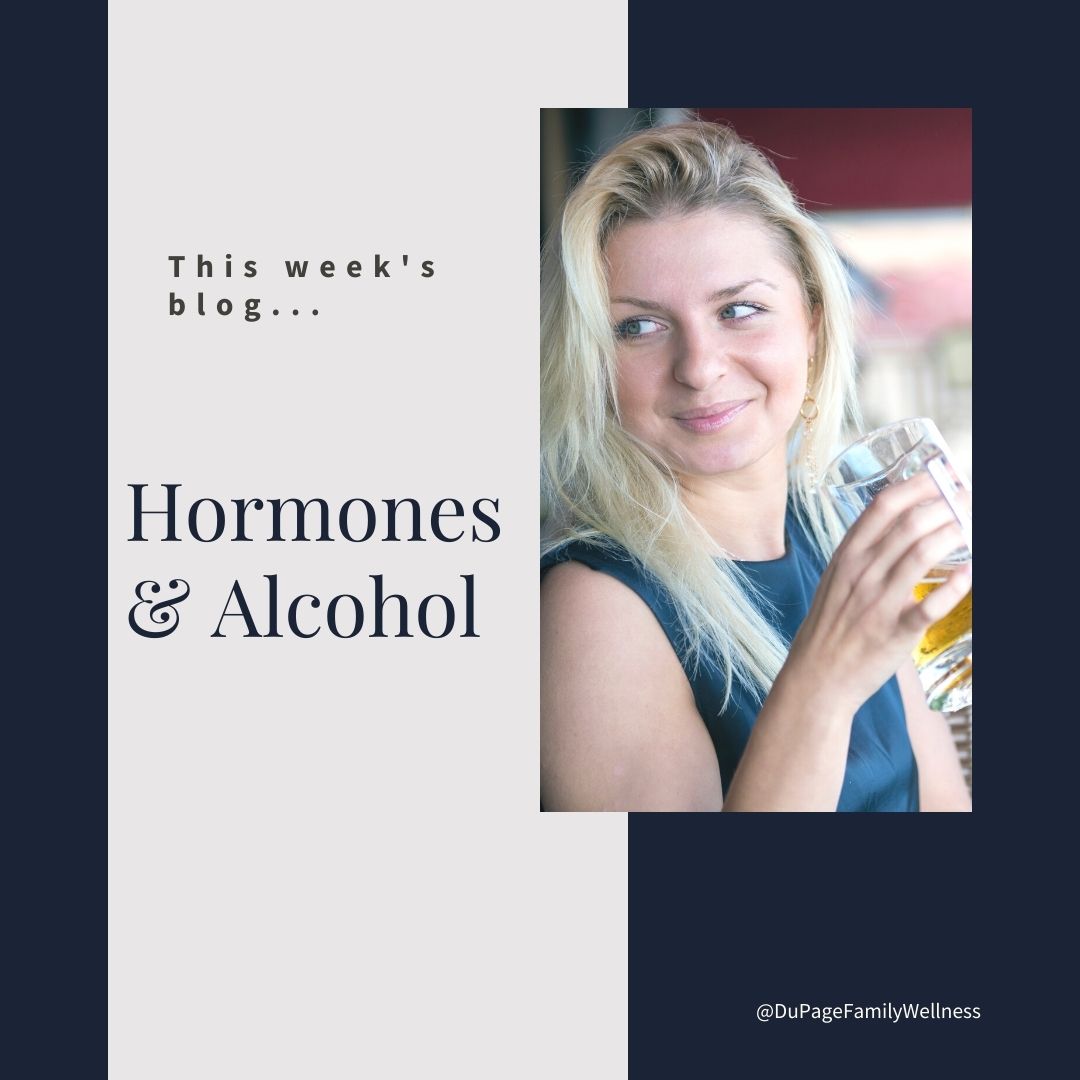 In the summer you may have visions of lounging by the pool with a drink in hand. While that isn’t always an option, a beer or glass of wine at the end of the day certainly is.
In the summer you may have visions of lounging by the pool with a drink in hand. While that isn’t always an option, a beer or glass of wine at the end of the day certainly is.
There is nothing wrong with an occasional drink. It can be a nice way to wind down or have fun with your friends.
At the same time, it’s good to understand the effects it has on our bodies. Once we do, we can make wise decisions on what and how much we drink.
Let’s take a look specifically at how it affects women in regard to our hormones.
What Are Hormones?
Hormones are chemical messengers within the body that are secreted by glands in the endocrine system. These messengers tell the tissue and organs in the body what to do.
The proper balance of hormones is crucial for both physical and mental health. When something happens to make one hormone increase the other hormones are affected.
It's like a delicate dance with some hormones following another's lead.
Alcohol and Hormones?
Alcohol has a complicated relationship with the balance of hormones within the body. It increases some hormone levels, which inversely lowers other hormone levels.
Let’s take a look at some of the specific ways moderate alcohol impacts this system.
- Estrogen - Alcohol has been found to raise the level of estrogen in the body. One of the reasons is because both alcohol and estrogen are processed in the liver. When the liver is busy handling alcohol, it prevents the liver from detoxing estrogen as efficiently. This results in a buildup of estrogen in the system.
- Cortisol - Moderate alcohol increases this stress hormone while suppressing the amount of melatonin the body produces by up to 20%. While you may expect alcohol to relax you and give you a good night’s sleep, research says that the opposite actually happens.
- Thyroid Hormones - The rise in estrogen we spoke about earlier prevents the thyroid from releasing the normal amount of hormones. In addition, the increase in stress hormones will make your body less effective in converting T4 into T3.
- Progesterone - Estrogen and progesterone have an inverse relationship. When estrogen levels rise due to alcohol consumption, progesterone will decrease.
- Insulin - Alcohol may hinder the body’s ability to process sugar in some people and increase issues with insulin resistance.
Implications for Women
When we understand the impact that alcohol has one our system, we can use this knowledge to make decisions about our alcohol consumption.
Consider your body and season of life. If you are already dealing with Polycystic Ovary Syndrome (PCOS) or other hormonal issues, you may choose to be more cautious with your alcohol intake than someone who is not struggling with it.
Another group that may choose caution, are women trying to conceive. Since proper hormone balance is crucial for conception, women with fertility issues may wish to limit their alcohol consumption especially during the week leading up to ovulation.
Please know that I am not saying alcohol is bad! It is a personal decision, and you won’t find any judgment here. I just want to present this knowledge to you so you can make an informed decision surrounding your alcohol intake.
Dr. Jamie

